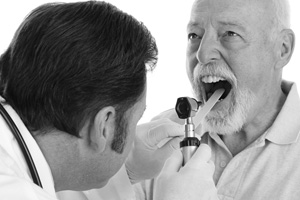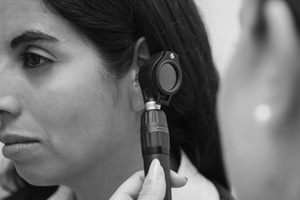View the complete list of conditions
What Are Sinus Polyps?
If you've ever had problems with your sinuses, you've probably heard of sinus polyps before. They can cause sinus infections and lead to congestion, loss of smell, or headaches. Essentially, sinus polyps are masses of mucosa that occur in your mucous membranes. They can move around and though an exact cause is unknown, it's believed that allergies or asthma play a big part in their development. There are two main types of sinus polyps, antrocranal (which are single polyps usually found in children) and ethmoidal (which are bilateral and usually found in adults). There are a few diseases associated with sinus polyps, including Young's syndrome, Cystic fibrosis, and Kartagener's syndrome. Sinus polyps can also lead to chronic snoring problems.
Symptoms of sinus polyps can include congestion, loss of smell, runny nose, or headaches if it's become a sinus infection. Sinus relief is the first thing an ear, nose, and throat doctor will look at, particularly if it's chronic. Sinus treatment can make you feel like a whole new person when it's successful, so don't hesitate in visiting an ear, nose, and throat doctor if you think you are presenting with symptoms associated with sinus polyps.
How do you treat sinus polyps?
Sinus polyps can get very serious and you should never attempt to diagnose them yourself. Visiting an ear, nose, and throat doctor is the only way to really know whether or not you're suffering from sinus polyps and need to start looking at different methods of sinus relief. You may need to look at long-term, chronic sinus treatment if this is a recurring problem, but always talk to a doctor first. In order to diagnose sinus polyps, an ear, nose, and throat doctor will do a CT scan and examine the nose. It's important to know what exactly is going on in your sinuses before determining the best method of treatment and sinus relief.
Chronic sinus treatment can include pills or sprays to help with the symptoms and antibiotics can be taken if there is an infection. Another method of sinus relief is nasal polyps surgery. An ear, nose, and throat doctor may recommend nasal polyps surgery if other methods of sinus relief don't work. While it depends on the severity of your sinus polyps, these surgeries are generally never the first method of attack. Getting nasal polyps surgery can depend on the size, number, location, and extent of inflammation in your sinus polyps. If you need surgery as a method of sinus relief, make sure you get the best ear, nose, and throat doctor you can because you want to make sure you have less of a chance of the sinus polyps coming back. Chronic sinus treatment may be necessary after the nasal polyps surgery to ensure the polyps were treated and won't return.
Conditions
Ears
Nose
- Ballon Sinusplasty Surgery
- Concha
- Deviated Septum Relief In NYC
- Deviated Septums
- Fixing a Deviated Septum
- Identifying A Deviated Septum
- How Do I Know if My Nose is Broken?
- Nasal Polyps
- Nasal Polyp Surgery
- Nasal Septums
- NYC Nasal Polyp Reduction
- Septoplasty And Turbinate Surgery
- Treating a Deviated Septum
- Treating Nasal Polyps
- Turbinate Reduction
Throat
- Dysphagia
- Leukoplakia Treatments
- Reflux Laryngitis
- Swallowing Disorders
- Treating Anosmia
- Vocal Disorders
Allergies & Asthma
- Dealing With Allergic Rhinitis
- Managing Allergies and Asthma
- How to Allergy-Proof Your Home from Indoor Allergens
Sinus
- Chronic Sinusitis Treatment
- Endoscopic Sinus Surgeries
- Sinus Headache Cure
- Sinus Infection Treatment
- Sinusitis Surgery
- Treating Sinus Infections
Sleep & Snoring
- Diagnosing Sleep Disorders
- Having Trouble Sleeping
- Home Sleep Studies
- Pillar Implants
- Pillar Treatment for Snoring
- Sleep Apnea Conditions
- Sleep Apnea Specialists
- Sleepless in NYC
- Sleep Study Diagnosis
- Can Snoring Cause Health Issues?
- Treating Sleep Apnea
- Treating Snoring
- What is a CPAP Device?





